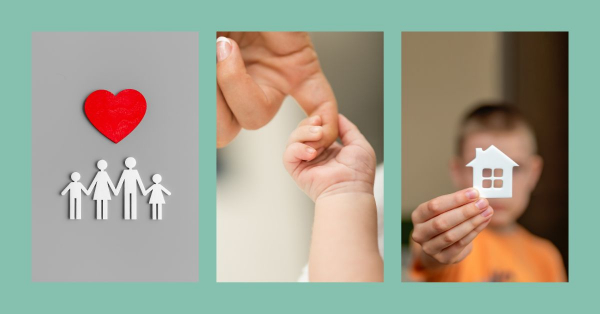Can I Handle the Grief When Foster Kids Leave? Can My Kids?
Ask any foster parent or even someone who is thinking about doing it, and they’ll tell you that one of the most common things you hear from other people is something along these lines: I could never say goodbye when or if my foster kids leave. Everyone has his or her own way to handle these kinds of questions (mine varies depending on my mood, the sincerity of the person asking the question, and whether my kids are in earshot). However, the heart behind the question is valid—how do you love and care for a child, make her a part of your family, all while knowing that she might be moving on?
I’m not sure there is a definitive answer, but saying goodbye to a child you love causes grief no matter how positive the circumstances may be. One thing I’ve discovered about grief—both from my own perspective and from watching others experience it—is that it looks different for everyone, and that’s okay.
Here’s the other thing I’ve discovered about grief, it doesn’t have to paralyze you. Even in the most devastating, unforeseen circumstances, we have a choice to let those circumstances lead to bitterness and stagnation, or growth. You can say goodbye and still keep doing this. You are the example for your children; they will handle it as well as you do. Here are a few of the things I’ve found helpful during the inevitable goodbyes that come with being a foster parent.
Prepare for It
For the majority of kids who enter foster care, the initial plan is to reunify them with their parents, or failing that, with another family member. Any seasoned foster parent will tell you that the direction of a case can change on a dime. For these reasons, it’s always a good idea to remember that this child may not be yours forever. Sometimes, foster kids leave. Make sure the language you use reflects this—not that you want to constantly be reminding your foster child that they are only temporary, but so that you don’t make promises you may not be able to keep. This is important for you, your foster child, and your other children.
It is also another reason why it is important to try and build a positive relationship with your foster child’s birth family. You will increase the likelihood of being able to stay in contact when the child goes home. Also, if you get to know and care about the parent, it’s a little easier to celebrate with them even when you need to say goodbye.
Remember Why You Signed Up for This
The strong possibility of reunification is one of the reasons that I am nervous for families who become foster parents with the primary goal of growing their own families. If your hope from the beginning is that the child is placed with you forever, saying goodbye will only devastate you. If, however, your goal is to see a child happy, healthy, and safely restored to their family, you will find joy in the midst of the grief.
Allow Yourself to Grieve
Even under the best circumstances, saying goodbye to a child you love is hard. It should be hard, that’s how you know you’re doing it right. Take the time you need and don’t rush to move on to the next child. It is important for both you and your kids. If anyone in your family needs a break before jumping in again, make space for that. Know that this might be different for each placement.
In the end, choosing to be a foster parent means you may very well be choosing grief when foster kids leave. That’s just the way it works sometimes. It is not unique to foster care. Like the emergency room doctor who gives up sleep during a 24-hour shift, or the starving artist who gives up a more stable income, we all make sacrifices because we believe the result is worth it. In the world of foster care, we believe every child deserves to be loved by someone who will grieve when they leave, and that makes the price worth it.
Do you feel there is a hole in your heart that can only be filled by a child? We’ve helped complete 32,000+ adoptions. We would love to help you through your adoption journey. Visit Adoption.org or call 1-800-ADOPT-98.







